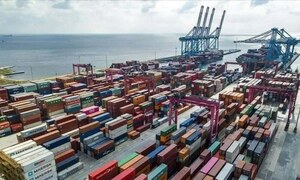BEIJING: China’s delayed carbon trading system will start operating in February, the environment ministry has said, as the world’s biggest polluter takes steps towards decarbonising its economy by 2060.
The ministry issued rules on Tuesday allowing provincial governments to set pollution caps for big power businesses for the first time. Firms can buy the right to pollute from others who have a lower carbon footprint, but the programme is expected to drive down overall emissions by making it more costly to do so.
“This is one of the most exciting developments for the world’s largest carbon market in the recent rollercoaster year,” said Zhang Jianyu, vice president of the Environmental Defense Fund China, which has consulted with the government on emissions trading.
However, 60 percent of power in China is still provided by coal despite ambitious renewable energy targets, and experts warn the powerful coal lobby will be pressing hard for favourable carbon caps.
Under the new rules, more than 2,200 firms that emit over 26,000 tonnes of greenhouse gases per year can start trading their emission quotas from February 1.
China’s nationwide system is expected to eclipse that of the European Union to become the world’s largest emissions trading scheme (ETS). Beijing has pledged to peak emissions before 2030 and become carbon neutral 30 years later. But it pared back initial plans to curb emissions from seven other industries including aviation, steel and petrochemical manufacturing.






















Comments
Comments are closed.